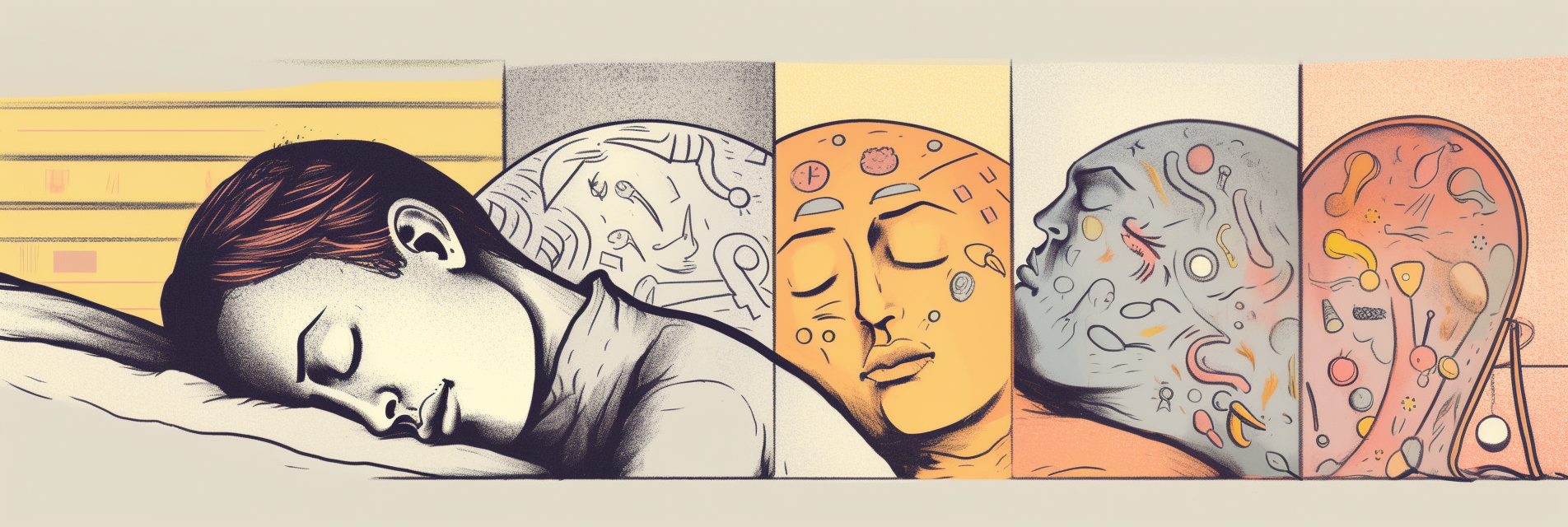Sleep Apnea

Sleep apnea is a sleep disorder that affects millions of people worldwide. It is characterized by interruptions in breathing during sleep, which can lead to fragmented sleep and daytime fatigue. In this article, we will discuss the symptoms, causes, treatments, and risks associated with sleep apnea.
What is Sleep Apnea?
Sleep apnea is a sleep disorder characterized by repeated interruptions in breathing during sleep. These interruptions can last anywhere from a few seconds to several minutes and can occur dozens or even hundreds of times per night. There are two main types of sleep apnea: obstructive sleep apnea (OSA) and central sleep apnea (CSA).
Obstructive sleep apnea (OSA) is the most common type of sleep apnea and occurs when the muscles in the back of the throat fail to keep the airway open during sleep. This results in a blockage of airflow, which can cause snoring, gasping, or choking sounds as the person struggles to breathe.
Central sleep apnea (CSA) is less common and occurs when the brain fails to signal the muscles responsible for breathing. This results in a lack of effort to breathe, which can cause pauses in breathing during sleep.
Symptoms of Sleep Apnea
The most common symptoms of sleep apnea include:
- Snoring loudly, especially with periods of silence
- Waking up gasping or choking
- Daytime sleepiness or fatigue
- Morning headaches
- Difficulty concentrating or memory problems
- Irritability or mood disturbances
- Waking up with a dry mouth or sore throat
If you are experiencing any of these symptoms, it is important to speak with your healthcare provider to determine if you have sleep apnea.
Causes of Sleep Apnea
There are several potential causes of sleep apnea, including:
- Obesity or excess weight
- Structural abnormalities in the airway, such as enlarged tonsils or a deviated septum
- Smoking or alcohol use
- Certain medications or substances, including sedatives and muscle relaxants
- Family history of sleep apnea
- Medical conditions, such as high blood pressure, heart disease, or diabetes
Non-Drug Treatments for Sleep Apnea
There are several non-drug treatments available for sleep apnea, including:
-
Continuous Positive Airway Pressure (CPAP): CPAP is a machine that delivers pressurized air through a mask worn over the nose and/or mouth to keep the airway open during sleep.
-
Oral Appliances: Oral appliances, such as mouthguards or splints, can help keep the airway open by repositioning the jaw or tongue.
-
Positional Therapy: Sleeping in a certain position, such as on the side instead of the back, can help reduce snoring and improve sleep quality.
-
Lifestyle Changes: Losing weight, quitting smoking, and reducing alcohol intake can all help reduce the risk of sleep apnea.
Other Common Remedies for Sleep Apnea
There are several other remedies that may help improve sleep quality for those with sleep apnea, including:
-
Elevating the head of the bed: Elevating the head of the bed by a few inches can help reduce snoring and improve breathing during sleep.
-
Nasal Strips: Nasal strips can help open up the nasal passages and improve breathing during sleep.
-
Weight Loss: Losing weight can help reduce the severity of sleep apnea, particularly in cases where obesity is a contributing factor.
Lifestyle Changes to Improve Sleep
There are several lifestyle changes that can help improve sleep quality for those with sleep apnea, including:
-
Maintaining a Healthy Diet: Eating a healthy, balanced diet can help reduce the risk of obesity and improve overall health.
-
Regular Exercise: Regular exercise can help improve cardiovascular health and
reduce the risk of obesity, both of which can help reduce the risk of sleep apnea.
-
Avoiding Smoking and Alcohol: Smoking can irritate the airways and make breathing more difficult, while alcohol can relax the muscles in the throat, making sleep apnea more likely.
-
Establishing a Regular Sleep Schedule: Going to bed and waking up at the same time each day can help regulate the body's internal clock and improve sleep quality.
Risks Associated with Prolonged Sleep Apnea
Untreated sleep apnea can have serious health consequences, including an increased risk of:
- High blood pressure and heart disease
- Stroke
- Type 2 diabetes
- Depression and anxiety
- Impaired cognitive function and memory problems
- Accidents and injuries due to daytime sleepiness
In severe cases, sleep apnea can also lead to respiratory failure and even death. It is important to speak with your healthcare provider if you suspect you may have sleep apnea to determine the appropriate treatment plan.
Sleep apnea is a serious sleep disorder that can have significant consequences for a person's health and well-being. However, with proper treatment and lifestyle changes, many people are able to improve their sleep quality and reduce the risk of associated health problems. If you are experiencing symptoms of sleep apnea, speak with your healthcare provider to determine the underlying cause and develop an appropriate treatment plan.
-